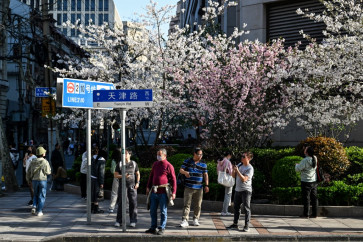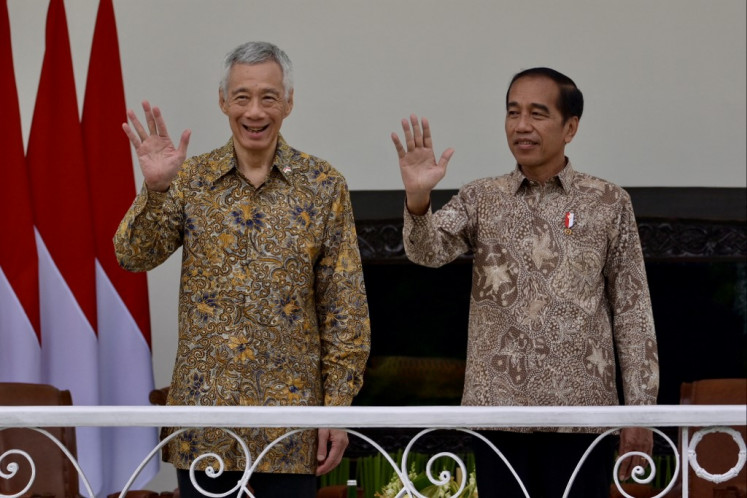RI gains support for virus sharing proposal
Indonesia's proposal for a virus-sharing mechanism to benefit developing nations has gained a major boost, with 112 countries throwing their weight behind the idea
Change Size

Indonesia's proposal for a virus-sharing mechanism to benefit developing nations has gained a major boost, with 112 countries throwing their weight behind the idea.
The support was expressed at the first Non-Aligned Movement (NAM) Health Ministers Meeting in Geneva on Wednesday. The event is being attended by representatives of 193 countries, Indonesian Health Minister Siti Fadilah Supari said Saturday.
The meeting was held in conjunction with the World Health Assembly, which concluded on Saturday.
Speaking at a media conference on her arrival at Soekarno-Hatta airport in Jakarta, Minister Siti said the supporting participants praised Indonesia's Responsible Virus Sharing and Benefits Sharing proposal as "more transparent, fair and equal" for developing countries.
"We received moral and political support from health ministers from England, Russia, Iran and Australia," Siti said.
"Russia, for example, offered cooperation in the field of healthcare, such as by providing training for medical workers, and with the production of medicines and a new avian flu vaccine."
A bilateral meeting between Indonesia and Russia will follow in next few weeks, she said.
During her stay in Geneva, Siti also held talks with U.S. health secretary Michael Leavitt to discuss the Material Transfer Agreement (MTA), a scheme for global sample sharing rules. The two met in Jakarta in April for the same purpose.
During the WHO meeting, Siti called for the replacement of the 60-year-old Global Initiative Surveillance Network (GISN), which, she said, benefited developed countries at the expense of developing ones.
The cooperation and support from NAM countries during the negotiations for the new mechanism is a show of solidarity to improve healthcare in developing countries, Siti said.
"It is time for developing countries to unite to avoid becoming victims of powerful countries," she said.
Indonesia attracted international concern when it refused to share avian influenza virus samples last year, demanding a guarantee from richer nations and pharmaceutical companies they would provide access to affordable vaccines derived from their samples.
Poor countries like Indonesia, which have been hit hardest by avian influenza, suffer most from a lack of access to costly vaccines produced by Western companies using isolates obtained from the GISN.
Siti wrote about what she described as her long struggle against global injustice in her book Saatnya Dunia Berubah, Tangan Tuhan dibalik Flu Burung (It's Time for the World to Change, Divine Hands behind Bird Flu).
In the controversial book, she raises suspicions that the WHO and the U.S. have conspired to force developing countries, including Indonesia, into buying expensive bird flu vaccines. The WHO and the U.S. have denied the allegations.
Indonesia's permanent representative to the UN in Geneva, Makarim Wibisono, said the issue of sharing virus samples would be discussed further at a meeting of the permanent representatives of NAM member countries to the UN, in Geneva on June 30.
"There will be resolution of the issue. We will later take this resolution to the International Governmental Meeting on Pandemic Influenza Preparedness in November," Makarim said. (trw)









